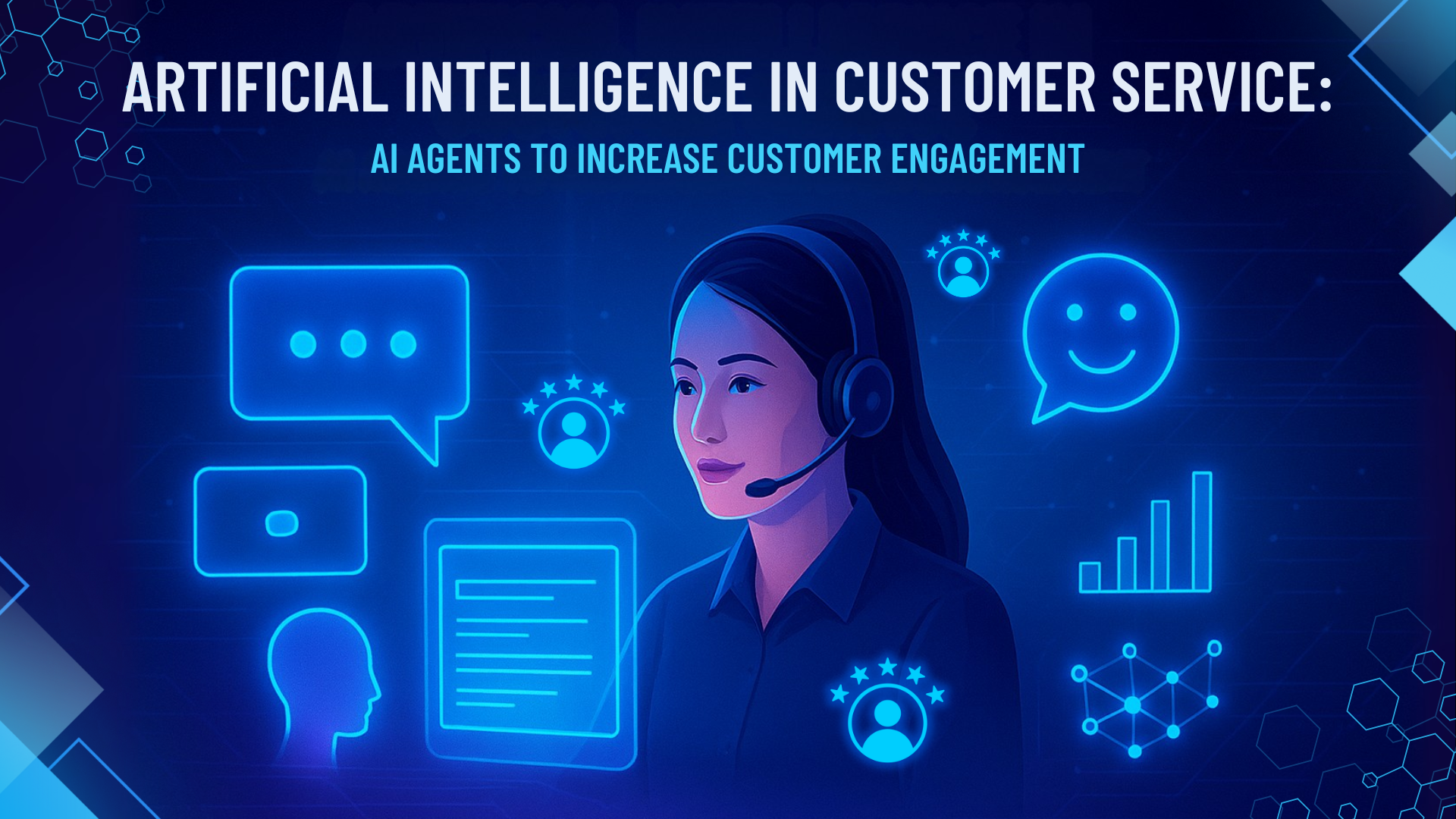In today’s rapidly changing business environment, organizations are constantly seeking ways to enhance their competitiveness and improve operations. In this pursuit, artificial intelligence (AI) has emerged as a transformative force. Understanding and leveraging AI in enterprise solutions is not just a strategic advantage—it’s becoming a necessity.
The Game-Changer: AI in Enterprise Solutions
Artificial intelligence encompasses technologies designed to perform tasks that typically require human intelligence, such as learning from data, pattern recognition, decision-making, and process automation. In the realm of enterprise solutions, AI is proving to be a game changer in several key areas:
Operational Efficiency of AI in Enterprise Solutions
One of the most significant impacts of AI in enterprise solutions is its ability to enhance operational efficiency. AI-powered tools and systems can perform routine tasks like data entry, scheduling, and report generation, freeing employees to focus on more strategic activities. Technologies such as Robotic Process Automation (RPA) can handle repetitive tasks with greater accuracy, reducing errors and increasing productivity.
Additionally, AI-driven predictive analytics can help businesses optimize supply chain management by forecasting demand, identifying potential issues, and suggesting adjustments, leading to significant cost savings and improved distribution.
Enhanced Decision-Making
AI in enterprise solutions enables better decision-making by providing real-time data and predictive analytics. AI algorithms can identify trends, correlations, and anomalies that may not be apparent with traditional analytical methods.
For example, AI-powered business intelligence (BI) tools can analyze complex datasets to deliver actionable insights, helping leaders make informed decisions about market strategies, product development, and customer engagement.
Personalized Customer Experience
In the era of digital transformation, personalizing the customer experience is critical for maintaining a competitive edge. AI plays a key role by analyzing customer data to tailor communications and interactions based on individual preferences and behaviors.
Machine learning algorithms can segment consumers based on purchase history, browsing behavior, and social media activity. This segmentation allows businesses to create targeted marketing campaigns, recommend relevant products, and provide customer-focused support, ultimately fostering stronger customer relationships and higher engagement levels.
Risk Management and Fraud Detection
Managing risk and detecting fraud is vital for companies across various industries. AI significantly enhances these areas by identifying patterns and anomalies that could indicate fraudulent activity or potential risks.
Advanced machine learning models can analyze transaction data in real-time to detect suspicious behaviors, such as abnormal spending or irregular accounting activity. Through AI-driven fraud detection systems, companies can minimize losses, protect assets, and maintain regulatory compliance.
Innovation and Product Development
AI is a powerful driver of innovation, enabling companies to accelerate product development and bring new solutions to market faster. AI-powered tools can analyze market trends, consumer behavior, and the competitive landscape to identify new products and services.
For example, AI can aid in developing and testing prototypes, predicting market acceptance, and improving product quality based on user feedback. By integrating AI into innovation processes, companies can stay ahead of the competition and meet evolving consumer needs.
Human Resources and Talent Management
The role of AI extends to human resources and talent management, where it can streamline various HR functions and enhance the employee experience. AI-powered recruitment tools can analyze resumes, match candidates to job openings, and even conduct initial interviews via chatbots.
Moreover, AI in enterprise solutions can assist in monitoring employee performance, identifying skill gaps, and recommending personalized training programs. Leveraging AI in HR processes allows businesses to optimize their talent acquisition and management strategies, leading to a more engaged and productive workforce.
The Future of AI in Enterprise Solutions
As AI technology continues to evolve, its application in enterprise solutions is expected to expand exponentially. Emerging trends such as Artificial General Intelligence (AGI), Explainable AI (XAI), and advanced Natural Language Processing (NLP) will shape the future of AI in business.
- Artificial General Intelligence (AGI): AGI refers to AI that can understand, learn, and apply knowledge across a wide range of tasks at a level comparable to human intelligence. While AGI is still conceptual, its potential to revolutionize business solutions is immense.
- Explainable AI (XAI): As AI systems become more complex, ensuring their decisions are transparent and understandable is increasingly important. XAI aims to make AI’s decision processes more interpretable, which is crucial for building trust and ensuring compliance in business applications.
- Advanced Natural Language Processing (NLP): NLP technology is advancing, allowing AI systems to better understand human language. This improvement will enhance customer communication, simplify internal processes, and improve language-based AI applications.
Conclusion
The role of AI in today’s business solutions is profound and transformative. From improving operational efficiency and decision-making to enhancing customer experience and risk management, AI is reshaping how businesses operate and compete. As AI technology continues to evolve, the possibilities for its applications in business solutions are limitless, offering exciting opportunities for growth, innovation, and success.





